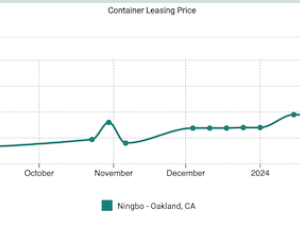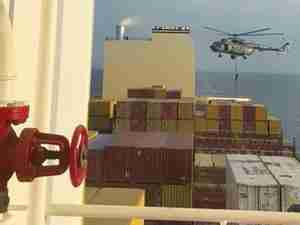By Peter A. Buxbaum, AJOT
After several years of consideration, consultation, and discussion, the European Union is moving to outlaw liner shipping conferences. As 2005 was coming to close, the European Commission, the highest lawmaking body in the EU, announced that it had adopted a policy to repeal the block exemption granted to liner conferences in European competition law.
The commission policy, in essence, adopted a proposal that was being pushed by shippers for years, and shippers, predictably, were elated over the development. Carriers, although they fought changes in the competition law, saw the proverbial handwriting on the wall and opted to float an alternative to liner conferences which would allow for extensive information sharing among carriers. The European Commission is considering issuing guidelines for such an information exchange in the event the repeal of the block exemption.
EU competition rules generally do not permit restrictive agreements such as liner conferences. But the conferences benefited from a special regulation, known as a block exemption, which allowed them to fix prices and regulate capacity provided that the positive effects of the agreement outweighed the negative, and that carriers passed on a fair share of benefits to consumers.
The commission's policy was based on studies that it commissioned to be conducted by think tanks and academic institutions as well as discussion papers submitted by stakeholders such as the European Shippers' Council and the European Liner Affairs Association. The commission concluded that a repeal of the block exemption would bring substantial benefits to EU industry and consumers in the form of lower freight rates, greater reliability of transportation services, and the increased competitiveness of the EU liner shipping industry. The commission also found that the repeal was consistent with the objectives of the EU's Lisbon Strategy, which calls for liberalization in a number of economic sectors, specifically transportation.
'The European shipping industry is strong and has everything to gain from a competitive market,' said Commissioner Charlie McCreevy, the European Commission's point man on the proposal. 'Customers are clamoring for business in this industry to be conducted as it is in all other sectors. I call on the Council of Ministers to adopt this proposal quickly so that the benefits to the EU economy can kick in.'
Now that the European Commission has approved the proposal to repeal the block exemption, the measure will be forwarded to the EU's Council of Ministers for adoption and to the European Parliament for consultation. After its adoption, the European Commission will publish guidelines on the application of the competition rules to the liner shipping sector. Final abolition of the block exemption is expected in 2008 or 2009.
The European Shippers' Council viewed the commission's proposal as a complete endorsement of the ESC's previously articulated arguments on the negative effects of the liner conference system. 'Everyone wins from a repeal of the block exemption, shippers, ocean carriers and consumers alike,' said Nicolette van der Jagt, Secretary General of the ESC. 'We are not surprised that an independent assessment concluded that removing a cartel would result in price reductions, greater efficiency in the industry, better services, and greater competition. What is more surprising is that, in the twenty-first century, it is even necessary to debate whether a cartel should exist or not.'
The European Liner Affairs Association expressed disappointment over the imminent demise of the conference system. 'This system has been in existence for over 150 years and on balance has served the industry well,' said ELAA Executive Director Chris Bourne. 'However, we appreciate that the commission, supported by shippers and their associations, has steadfastly opposed its continuation. We must now look to the future.'
In order to avert the outright a







